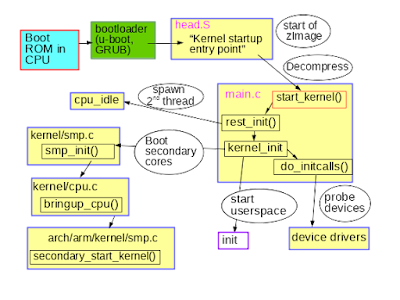Analyzing the Linux boot process

Follow us We have the truth The oldest joke in open source software is the statement that "the code is self-documenting." Experience shows that reading the source is akin to listening to the weather forecast: sensible people still go outside and check the sky. What follows are some tips on how to inspect and observe Linux systems at boot by leveraging knowledge of familiar debugging tools. Analyzing the boot processes of systems that are functioning well prepares users and developers to deal with the inevitable failures. More Linux resources What is Linux? What are Linux containers? Download Now: Linux commands cheat sheet Advanced Linux commands cheat sheet Our latest Linux articles In some ways, the boot process is surprisingly simple. The kernel starts up single-threaded and synchronous on a single core and seems almost comprehensible to the pitiful human mind. But how does the kernel itself get started? What functions do initrd ( initia...